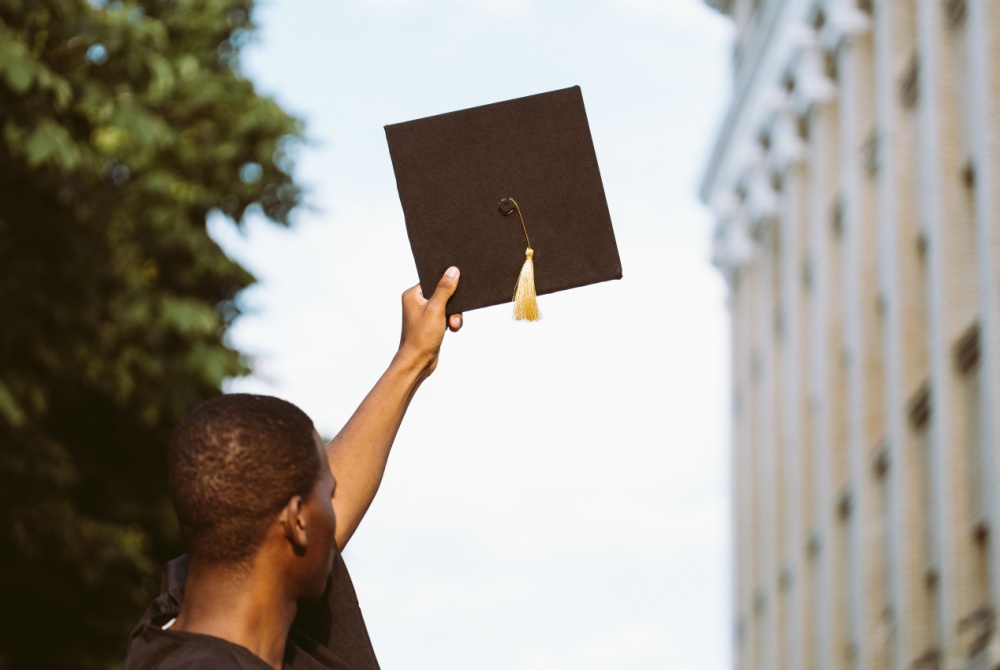
Launched in 2011, Black Philanthropy Month will soon wrap up another August of celebration, community and impact. Held annually, this year’s theme is “Afro-Futures of Giving,” which aims to activate “contemporary Afro-futurism” in the United States and throughout the African diaspora, while creating a more powerful future for Black giving and community wealth.
Black Philanthropy Month, started by Dr. Jackie Bouvier Copeland and the Pan-African Women’s Philanthropy Network, intends to be an expansive, even global, effort. There have been stateside events dialing in on Black giving in particular places — one of them, Celebrating Black Philanthropy in Connecticut: Intergenerational Approaches to Social Action, involved a conversation between tech couple Harold and Bernicestine Bailey, civic leader Christopher R. Cloud and others, and was presented in partnership with organizations like the Community Foundation for Greater New Haven.
On the global level, last year’s Black Philanthropy Month efforts included putting a spotlight on Brazil, a country where more than half of the population are of African descent — the largest number outside of the African continent. Black Philanthropy Month launched a pilot public awareness and fundraising campaign for Black Brazil’s underfunded community philanthropies called BPM Brazil: WISE Love in Action, supporting the small nonprofits and businesses in underserved Black communities.
When I connected with some of the architects of Black Philanthropy Month a few years ago, they spoke about Black philanthropy being not just about the wealthy elite, but about ordinary people giving what they could, whenever they could, and this is one such example.
This August — and for the other 11 months, too — here are a few trends that we’ve been observing that will come into play in Black philanthropy for the remainder of the year, and further down the line.
Continued support for HBCUs
Another day, another big HBCU gift. It almost seems strange to say this, especially given that HBCUs have been historically underfunded. But there have been some headlining gifts this year, including Bloomberg Philanthropies’ $600 million commitment to four historically Black medical schools: $175 million each to Howard University College of Medicine in Washington, D.C.; Morehouse School of Medicine in Atlanta; and Meharry Medical College in Nashville. My colleague Paul Karon wrote at the time that the gifts were the largest ever to these medical schools.
Of course, many newcomer HBCU megadonors aren’t themselves Black, but their support follows crucial giving from Black megadonors like Oprah Winfrey and Robert F. Smith, who have stepped up for HBCUs in the past, as well as the ordinary people who continue to lend their support to sustain these schools.
Meanwhile, though, we also got that Gregory Gerami snafu at FAMU a few months ago, which, as I wrote, shone a light on prevailing inequities in the higher ed donor base. But despite that unfortunate event earlier in the year, we’re optimistic about an uptick in serious philanthropy for HBCUs.
Democracy work
Though racial justice at home isn’t always grouped with democracy in philanthropic funding silos, when it comes to the runway before 2024 — once again, unfortunately, the Most Important Election of Our Time — it’s also again clear that the two cannot be separated. Black people were among the first to ring the alarm bells about regular citizen Trump and similarly highlighted the threat of Project 2025.
Progressive funders like Akonadi Foundation, powered by the wealth of a Black real estate mogul and his wife, have long been clear about the need for 501(c)(3) and 501(c)(4) funding, and other avenues, to stand tall for democracy. As has always been the case, both in this election and in so many others, Black disenfranchisement is at stake — and already taking place. In one article during the midterm elections, the foundation wrote, “Time is running out and the stakes are getting higher… Yet many donors and philanthropic institutions that fund progressive groups are showing up with one hand tied behind their backs.”
The good news is that this year, many democracy funders have rallied to get support out the door well before the fall. And now, having a Black candidate — and potential Black president — on the national ballot should galvanize even more donors to get involved.
Preservation and history
They say those who do not know their past are doomed to repeat it. And as a backlash continues against DEI, affirmative action and critical race theory, one key role for philanthropy is to keep history alive. I recently connected with the National Park Foundation about its funding for a series of major civil rights sites including the Frederick Douglass National Historic Site and the Emmett Till and Mamie Till-Mobley National Monument. And even more recently, I wrote about the National Trust for Historic Preservation’s work to restore and sustain historic civil rights sites, HBCUs and other historically Black institutions.
Black philanthropists like tech couple Rodney and Michelle Adkins have also shown a longstanding interest in this area, both as early donors to the Smithsonian’s National Museum of African American History and Culture, as well as funding a Rosa Parks installation at Georgia Tech. Billionaire Robert F. Smith, of course, has given tens of millions to the National Park Foundation to bolster civil rights sites, too. Expect this trend to continue.
